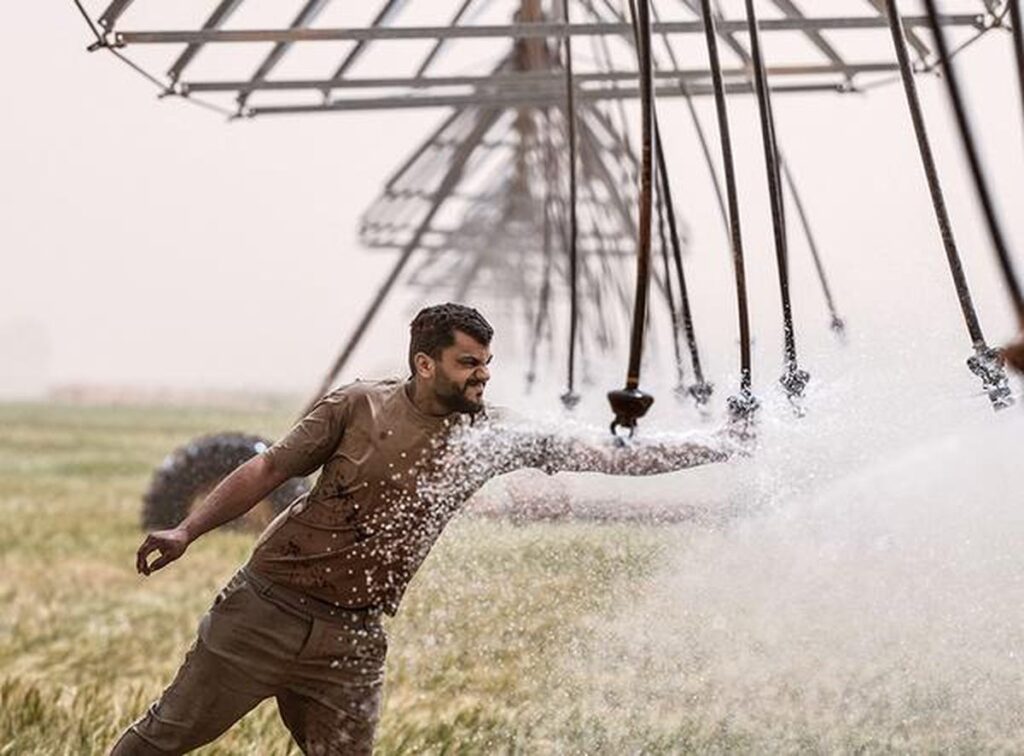Farmers Tap Groundwater, a land once blessed by the life-giving Tigris and Euphrates rivers, is facing a tough battle against water scarcity. Drought, climate change, and upstream dam projects have drastically reduced river flows, threatening traditional farming and food security. Yet, in the heart of the desert, Iraqi farmers are finding hope by digging deep — literally.
A Nation Thirsting for Solutions
Years of erratic rainfall, rising temperatures, and reduced river water have pushed Iraq into a full-blown water crisis. According to reports from the United Nations Environment Programme and the International Committee of the Red Cross, desertification now covers nearly 40% of Iraq’s land, and millions are at risk of losing their livelihoods.
Traditionally, Iraqi agriculture thrived on surface irrigation. Today, with rivers shrinking and canals drying up, many farmers have been forced to abandon their fields. Government figures indicate that Iraq’s agricultural output had been declining steadily — until a bold new method sparked a change.
The Rise of Groundwater Farming
Faced with these challenges, Iraqi farmers are drilling deep into ancient aquifers beneath the desert. Many wells go over 100 meters underground, tapping hidden reserves of fresh water. This technique, supported by the Ministry of Agriculture, has helped expand wheat farming to new areas once considered barren.

Using modern irrigation technologies like drip systems and center-pivot sprinklers, farmers are maximizing every drop. As reported by local media and agricultural research bodies, Iraq’s wheat harvest recently reached nearly 4 million tons, covering about 80% of domestic demand — a major achievement compared to previous years of heavy import reliance.
One farmer, Amin Salah from the Najaf desert, described this season as “golden,” crediting groundwater for his record yields. Similar success stories are emerging from provinces like Anbar, Muthanna, and Nineveh.
But at What Cost?
While groundwater farming offers a short-term lifeline, environmental experts warn it could create new long-term problems. Studies by environmental groups like Waterkeepers Iraq and academics from the University of Baghdad show that excessive pumping is lowering water tables alarmingly — in some areas by up to 15 meters within a single season.
Karim Bilal, an agricultural engineer specializing in water resources, cautions, “We’re pulling from reserves that took thousands of years to form. If we keep going without regulation, the wells will dry up, and it could take centuries to recover.”
Government advisors have acknowledged the threat and are promoting policies to regulate well drilling and encourage water-efficient farming. However, enforcement remains patchy in many regions, and not all farmers can afford expensive modern equipment.
Adapting for the Future
Experts from the Food and Agriculture Organization (FAO) and the World Bank stress the importance of integrated water resource management. Iraq is urged to focus on:
- Expanding drip irrigation to conserve water while boosting yields.
- Developing a groundwater monitoring system to track aquifer health.
- Negotiating regional water-sharing agreements with upstream neighbors like Turkey and Iran to protect river flows.
- Investing in farmer training programs to spread knowledge of sustainable practices.
Iraq’s Ministry of Water Resources has already started pilot projects to recharge groundwater using treated wastewater — a technique recommended by hydrologists as a way to slow aquifer depletion.
Seeds of Hope in the Desert
Despite the challenges, Iraq’s desert farming revolution shows the resilience and determination of its people. Farmers are not only surviving in one of the world’s harshest environments but are also pioneering new techniques that could offer lessons for other drought-hit regions across the Middle East and Africa.
With strategic investments, stronger regulations, and regional cooperation, Iraq could turn its environmental crisis into an opportunity. As the world watches, the desert fields of Iraq may yet become a powerful symbol of adaptation and survival in a changing climate.
M23 Rebels Agree to Ceasefire in Eastern Congo Amid Peace Talks



